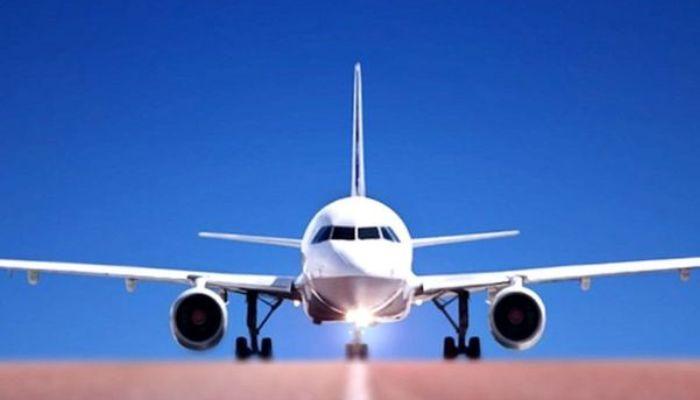As airfares from Nigeria to other countries continue to increase, some passengers are beginning to fly from Accra, Ghana to London, Canada and other frequently visited destinations in a bid to cut costs.
“Nigerians are already flying from Ghana to other countries because the lower inventories of tickets are no longer available in Nigeria; so people go to Accra because Accra still has the lowest inventory available,” Susan Akporiaye, president of the National Association of Nigeria Travel Agencies (NANTA), said.
According to her, the number of people doing this is not very high, and most of them are traders.
“By the time all airlines restrict sales to only the highest inventories like BA and Virgin Atlantic have done, then more people will move to Accra to fly,” she added.
BusinessDay’s investigation shows that an economy class return ticket to London on British Airways and Virgin Atlantic is N2 million and above as against an average of N350,000 in January 2022, showing an increase of over 500 percent. Also, a one-way ticket to the United States on other airlines currently cost an average of N1.8 million as against N400,000 in January.
Foreign airlines operating in Nigeria have since blocked all low ticket inventories on their websites, making it difficult for passengers to buy affordable tickets.
This is in order to mitigate the current difficulties experienced by airlines unable to access their blocked funds from tickets sold in Nigeria as a result of foreign exchange scarcity.
BusinessDay’s investigations show that airlines’ blocked funds have reached $600 million.
Last week, Emirates Airlines disclosed plans to cut its operations from Dubai to Lagos from 11 per week to 7 per week, starting from August 15, 2022 due to its inability to repatriate its blocked funds from Nigeria.
Akporiaye told BusinessDay that two months ago, most foreign airlines in Nigeria scaled down their Abuja operations from daily flights to four and five weekly flights.
“Emirates scaled down flights to Abuja two months ago; it is just that they are now scaling down from Lagos. All the airlines have scaled down from Abuja already. This happened like two months ago. British Airways, Emirates, Air France, KLM and Lufthansa all scaled down from daily flights in Abuja to five and four times weekly,” she said.
The NANTA president said flight reduction is part of the ways to reduce sales and mitigate the effects of the blocked funds and this eventually puts strain on passengers who have to jostle with the few available flights.
Emirates carries an average of 350 passengers per flight. For 11 flights from Dubai to Lagos, the airline carries 3,850 passengers. To operate a return flight, the airline would carry an average of 7,700 passengers weekly on the Dubai-Lagos route.
With the reduction of flight frequency to seven, it means the airline would carry an average of 4,900 passengers weekly on the same route.
Experts say the remaining 2,800 passengers would have to jostle for flights on Ethiopian Airlines, Egypt Air, Etihad Rwanda and Air Peace, which fly directly to Dubai or connect passengers to Dubai.
Kingsley Nwokeoma, president of Association of Foreign Airlines and Representatives in Nigeria (AFARN), told BusinessDay that the reduction of flights is the first of the many effects of the blocked funds.
“This is just the beginning. I hope it won’t get to a point when passengers have to go to neighbouring countries to pick flights to their various destinations and that is if this is not already happening. This should have been tackled when the money wasn’t so much. Every day that comes and goes, there is an addition to the amount of money that needs to be repatriated,” Nwokeoma said.
Read also: Delta Airlines records $13.8bn operating revenue in Q2
The AFARN president said when this happened in 2016, some foreign airlines had to suspend operations into Nigeria, adding that other airlines may take the decision of reducing Lagos flights as Emirates has done.
He said some of the aircraft that foreign airlines operate in Nigeria have long-term payment plans on them and therefore withholding their money would mean a strain on their operations.
Nwokeoma said: “These aircraft must go for all the checks; ground personnel must be paid. Airline staff in Nigeria are being paid from earnings from other countries. The fuel, navigational services, ground handling services are being paid with earnings from other countries.
“Fuel marketers have refused to be paid in naira. The airlines have not recovered from COVID-19. We have a lot of people flying out from Nigeria. A lot of airlines come in because we have the market but everyone is in business to make money. Aviation is 100 percent safety, and if these difficulties would compromise safety, then there is no need coming in.”
Sindy Foster, principal managing partner at Avaero Capital Partners, said the Emirates decision was not unexpected as the situation had become quite dire.
“They are commercial businesses and they have been trying as much as they can to repatriate their funds, so it is completely expected that they will take a commercial decision in the interest of their business as to how they proceed going forward,” Foster said.
She said the impact of what the sector is facing is critical, adding that with few flights serving people, the cost of travel will increase.
“The forex scarcity and high prices are something that affects all airlines. We had COVID-19, which impacted airlines; they didn’t go into this situation with lots of money in their coffers. Since January, we have seen aviation fuel price rise and we have seen a similar thing with forex. It is really uncertain and you can’t really plan as a business for this type of situation,” she added.
Join BusinessDay whatsapp Channel, to stay up to date
Open In Whatsapp





